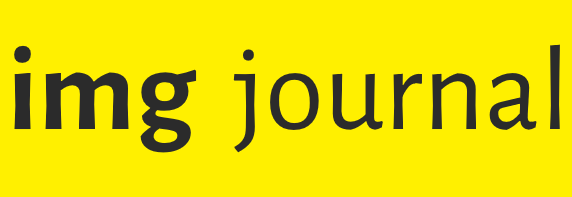About the Journal
Focus and Scope
IMG JOURNAL is an interdisciplinary scientific journal on image, imagery and imagination, and promotes the interchange between disciplines on monographic topics, mainly — but not only — related to the domain of visual science, graphic science, psychological and pedagogical sciences.
The journal encourages the publication of widely developed in-depth and experimental studies, but also theoretical studies, comprehensive reviews on specific topics and position papers.
Peer Review Process
IMG JOURNAL uses double-blind review, which means that both the reviewer and author identities are concealed from the reviewers, and vice versa, throughout the review process. To facilitate this, authors need to ensure that their manuscripts are prepared in a way that does not reveal or indicate their identity.
The editors — guest editors and editors-in-chief — will decide whether the submission is eligible for review. As part of the initial quality assessment, each article will undergo plagiarism detection through iThenticate. After this formal assessment, if positive, the submission will be sent to two external referees.
Based on the review reports the editors will make one of the following decisions:
A. Rejected. The submission is not accepted. In this case, a written explanation will be provided.
B. Major revision. In this case, the author will have the opportunity to re-submit the paper, taking into account the comments of the referees and the editor.
C. Minor revision. In this case, the author is required to make non-substantial changes or additions of clarification, taking into account the comments of the referees and the editor.
D. Accepted. The submission is accepted, with the possibility of requesting corrections of typos or minor errors in the application of the editorial guidelines.The full review process generally takes no more than two months from the submission date. Editorial, Interviews and Book Reviews will not be peer reviewed.
Every year the list of reviewers of the previous two issues will be published.
Publication Frequency
The journal publish an issue every six months, in autumn and in the spring.
Open Access Policy
This journal provides immediate open access to its content on the principle that making research freely available to the public supports a greater global exchange of knowledge.
It releases its articles under the terms of Creative Commons Attribution 4.0 International License.
This license allows anyone to download, reuse, re-print, modify, distribute and/or copy the contributions. The works must be properly attributed to its author(s). It is not necessary to ask further permissions both to author(s) or journal board, although you are kindly requested to inform the journal for every reuse of the papers.
Authors who publish on this journal maintain the copyrights.
Publication Fees
The journal has neither article processing charges nor submission processing fees.
Ethics
IMG JOURNAL adopts the AlmaDL Journals Code of Ethics.
The code is inspired by the guidelines from the Committee on Publication Ethics (COPE), in particular to the COPE Core Practices and its Principles of Transparency and Best Practice in Scholarly Publishing.
All parties involved in the editorial process, editorial staff members, authors, reviewers must know and apply the ethical principles of that document.
Data Policy
When relevant, authors are encouraged to follow Open Science and FAIR principles by publishing the research data associated to their articles in trusted data repositories, according to the international best practices and data management guidelines.
Detailed information is reported in the AlmaDL Journals Data Policy.
Authors who are affiliated to the University of Bologna can publish their data in AMSActa, the institutional research data repository.
Indexing and abstracting
The Journal is indexed in the following databases and search engines:
- ACNP – Italian Catalogue of Serials
- BASE – Bielefield Academic Search Engine
- DOAJ – Directory of Open Access Journals
- EZB – Electronic Journals Library, University of Regensburg
- Google Scholar – Academic search engine
- Jisc Library Hub Discover
- KubiKat
- Open Policy Finder – Open Access policies database
- ROAD – Directory of Open Access Scholarly Resources
- Ulrichsweb – Global Serials Directory
- Worldcat – The world’s largest library catalog
- ZDB - Zeitschriftendatenbank – German Union Catalogue of Serials
Archiving Policy
As part of AlmaDL Journals, the Journal adopts a strategy to ensure long term preservation of the published content. Please see the archiving policy of the publishing service AlmaDL Journals.
Publisher
Alma Mater Studiorum – Università di Bologna
Alma Diamond – open scholarly communication
Via Zamboni 33,
40126 - Bologna (Italy)
Ownership
Dipartimento di Scienze Dell’Educazione «Giovanni Maria Bertin»
Alma Mater Studiorum – Università di Bologna
Via Filippo Re, 6
40126 - Bologna (Italy)




